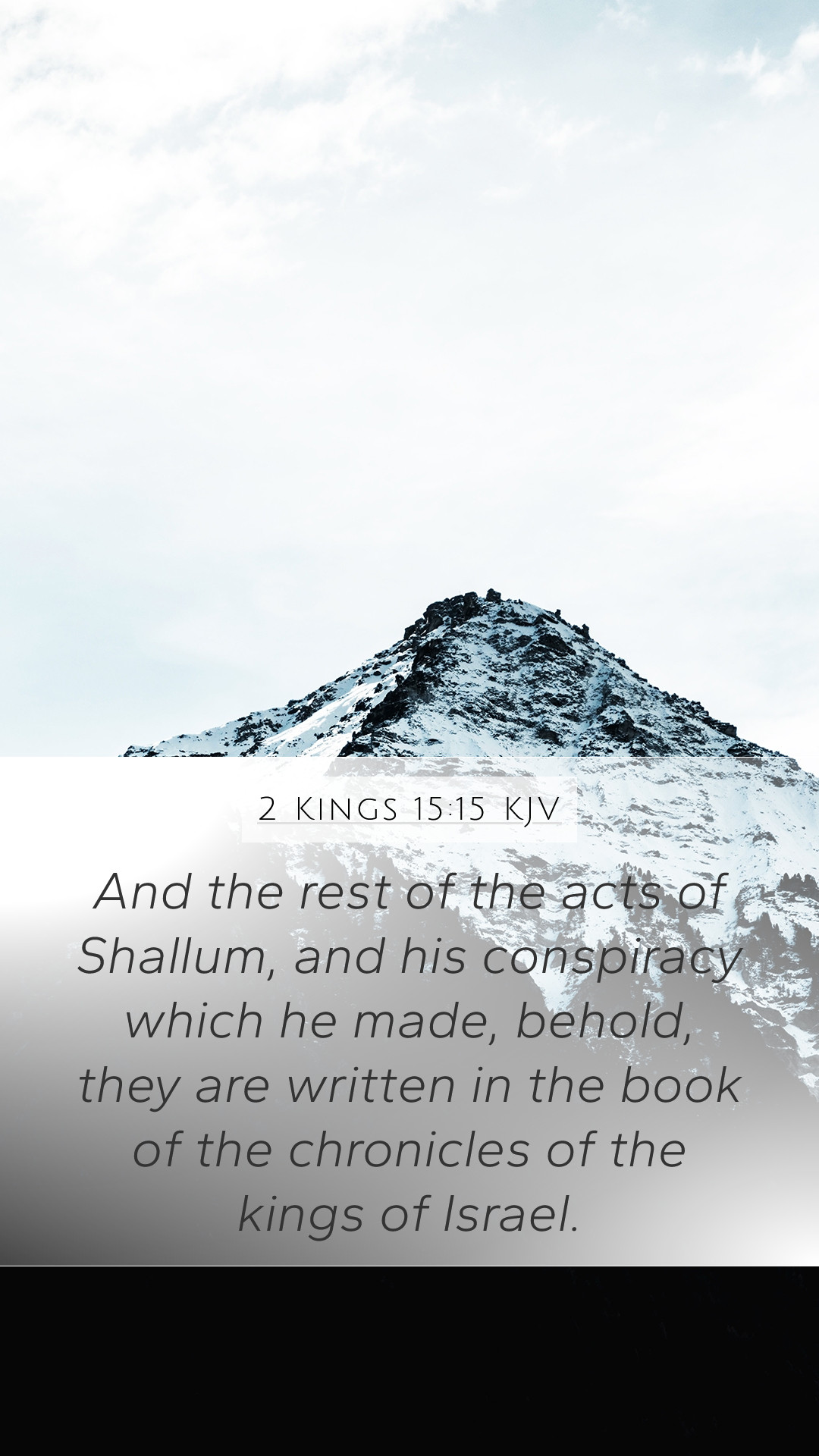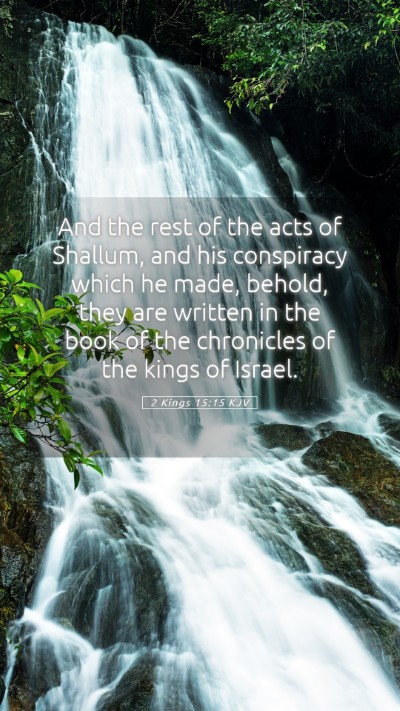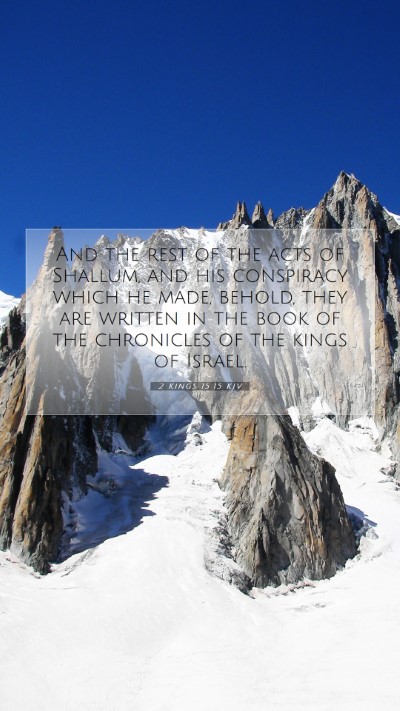Understanding 2 Kings 15:15 - A Detailed Commentary
The verse 2 Kings 15:15 states: "And the rest of the acts of Shallum, and his conspiracy which he made, behold, they are written in the book of the chronicles of the kings of Israel." To fully grasp the meaning of this passage, one can lean on established Bible verse interpretations from respected public domain commentaries.
Overview of the Context
This verse occurs during a tumultuous period in the history of Israel, characterized by political conspiracies and assassinations. Shallum, having killed the king, Jeroboam II, now reigns briefly. This passage highlights the brevity of his rule and the instability in Israel during this time.
Insights from Commentaries
Matthew Henry's Commentary
Matthew Henry emphasizes the fleeting nature of power and the inevitability of divine judgment. He notes that Shallum's reign was marked by treachery and instability, reflecting the larger moral condition of Israel. Henry points out that despite the short-lived nature of Shallum's rule, his actions are recorded as a warning to future generations about the consequences of usurping authority.
Albert Barnes' Notes on the Bible
Barnes provides critical insights regarding the "book of the chronicles." He suggests that this historical account served as a civic record for Israel, capturing the acts of kings for the populace to remember and learn from. Barnes underscores the significance of these chronicles in understanding Israel's history and governance, noting that they help to provide an established timeline of Israel’s kings and their respective fates.
Adam Clarke's Commentary
Adam Clarke delves into the significance of conspiracy in this verse, pointing out that Shallum's ascent was the result of a violent takeover rather than legitimate succession. Clarke argues that this highlights the broader spiritual decay of Israel, where divine order is disrupted by human ambition and greed. He also mentions that such actions lead to greater turmoil and eventual judgment upon the nation.
Key Themes and Lessons
- Transience of Power: The fleeting nature of Shallum's reign serves as a reminder that earthly power is temporary and often comes at a great cost.
- Historical Record: The mention of the chronicles signifies the importance of recording history as a way of teaching future generations the ramifications of their actions.
- Divine Governance: The passage underscores the belief that ultimately, God holds dominion over the affairs of humanity, and acts of conspiracy are viewed within the context of divine judgment.
- Moral Lessons: This verse serves as a cautionary tale about the implications of treachery and the importance of legitimacy in leadership.
Application of the Verse
For contemporary readers, the verse invites reflection on how one pursues leadership and authority. It prompts questions about ethical decision-making in leadership roles and the potential consequences of morally ambiguous actions. Exploring the implications of this verse can enrich Bible study groups and offer fruitful discussion in online Bible study sessions.
Related Bible Cross References
- 1 Kings 16:8-20 – Discusses the rise and fall of the kings of Israel.
- 2 Kings 14:29 – Provides context for Jeroboam II's reign and the political climate of Israel.
- 2 Kings 15:10 – Details the assassination of Zechariah, Shallum's predecessor.
- 2 Kings 15:19-20 – Further describes the instability in Israel through the reigns of succeeding kings.
Conclusion
The study of 2 Kings 15:15 reveals profound insights into the nature of power, moral decay, and historical preservation in the Biblical narrative. Through the lenses of prominent commentaries, readers gain a deeper understanding of this passage’s implications within the broader context of Scripture. This enhances our grasp of Bible verse meanings and encourages a more thoughtful approach to understanding Scripture.


